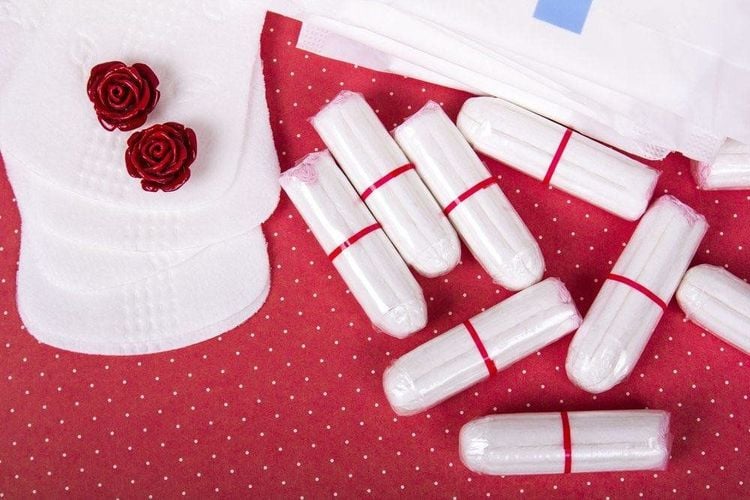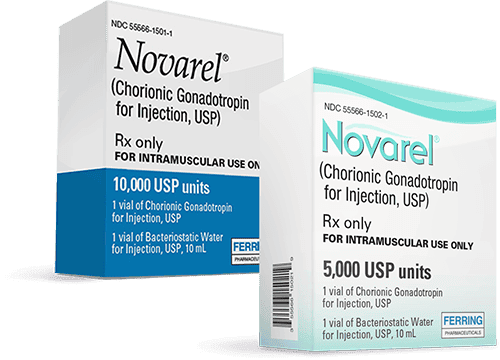This is an automatically translated article.
The article was professionally consulted with Specialist Doctor II Tran Thi Mai Huong - Obstetrician and Gynecologist - Department of Obstetrics and Gynecology - Vinmec Hai Phong International General Hospital.Menorrhagia is a confusing symptom for girls as well as mothers of children during puberty. This is a normal physiological phenomenon, but sometimes it also needs to be adjusted to avoid affecting the overall development of the body during this period and later.
1. What is pubertal menorrhagia?
A normal menstrual cycle in a healthy adult woman should last between 28 and 32 days. In which, the menstrual period occurs from the first day to the third day or the fifth day of the cycle and then stops completely.Menorrhagia is a menstrual cycle that lasts more than seven days, has a recurring cycle according to the menstrual cycle. At the same time, the amount of blood lost after each menstrual period is more than the normal cycle, usually over 80ml of menstrual blood per cycle (normally about 50-80ml/cycle). This concept needs to be distinguished from hemophilia. This is also bleeding that lasts more than seven days but is not cyclical and may not be a period. The amount of blood can be small, medium or high. In the case of menorrhagia, if it lasts for more than 15 days, it will become menorrhagia and is called menorrhagia.
Menorrhagia can occur at any age, from puberty, age of sexual activity to perimenopause. In particular, puberty, the time when menstruation has just started, the menstrual cycle is not really complete and menorrhagia is a very common disorder, called pubertal menorrhagia. This is a separate concept, different from the cases of menorrhagia in other age groups; Therefore, a specific approach is required.
2. What is the cause of pubertal menorrhagia?

For the next two years, girls often have irregular periods because of the absence of ovulation. It is caused by the endocrine activity of the hypothalamus - the pituitary gland or the immature ovaries. Estrogen is increased for a long time while the ovaries do not ovulate and do not produce a corpus luteum. Accordingly, progesterone is not secreted, which is an essential element to help the endometrium shed neatly and thoroughly, avoiding menorrhagia.
Consequently, no endometrial shedding occurs or occurs incompletely. The stimulated endothelium keeps thickening while the blood vessels do not grow in time, so there is not enough blood supply, leading to necrosis and shedding in patches, causing profuse and prolonged bleeding.
3. What are the symptoms of menorrhagia during puberty?
Menorrhagia during puberty is also called juvenile menorrhagia because it usually occurs within the year following the puberty milestone. This is a normal physiological phenomenon and will subside on its own, the menstrual cycle will gradually stabilize as the child gets older and the body fully develops.During this time, the menstrual cycle is often irregular, the cycle can be shorter or longer than usual in an extremely unpredictable way. Of the bleeding episodes, there are times that will not be considered a true menstrual cycle, as there is no ovulation. These are "cycles" that are long and accompanied by menorrhagia. Menstrual blood excreted can be much in quantity as well as the number of menstrual days. Sometimes in the first few days, menstrual bleeding is massive like a normal cycle, but then it does not decrease completely, but will last for many days afterward. Or in other cases, the girl found that the amount of menstrual bleeding appeared very little from the first day and continued like that for a long time before it stopped completely.
This is what makes girls in puberty as well as their parents extremely worried. At the same time, if there is no sense of thorough hygiene, this environment is extremely ideal for bacteria to live and cause disease, causing the spread of infection and the risk of affecting future fertility.
On the other hand, prolonged oozing blood loss easily leads to iron deficiency anemia, making children pale and tired, reducing their ability to concentrate on studying as well as limiting physical development. Besides, the continuous "red light" for so many days also affects psychologically, making children self-deprecating, fearful, less sociable in exchanges and physical activities with peers. In addition, pubertal menorrhagia is sometimes the first manifestation of underlying pathologies in the genitourinary system or hematologic diseases, coagulation disorders and hemostasis. Therefore, you should not be subjective but need to be examined for timely intervention, to avoid affecting your ability to become a mother in the future.

4. How to cure menorrhagia during puberty?
The principle of treatment of menorrhagia in puberty is to intervene to regulate the stability of hormone levels in the body according to the rules.The source of additional exogenous hormones is mainly from birth control pills with the hormone type and dose adjusted according to the day of the menstrual cycle. Accordingly, the doctor will prescribe combined or separate oral contraceptive pills depending on the characteristics of each child. In addition, oxytocin hormone can be added to increase uterine contraction in the first days of menstruation for more effective and thorough expulsion of menstrual blood, avoiding prolonged bleeding.
The above methods of birth control pill treatment have absolutely no effect on conceiving and giving birth in the future. Menorrhagia during puberty only requires intervention in the first two years; Once the menstrual cycle is stable, this supplemental hormone therapy will be gradually withdrawn and completely stopped. At the same time, the treatment of menorrhagia should be done as soon as possible. If left to last for many months and years, menorrhagia leads to severe anemia, poor health as well as damage to the hypothalamus - pituitary gland which is difficult to recover, and the treatment effect is very poor. As a result, children are more likely to have recurrent menorrhagia in the future or become infertile due to difficulty or failure to ovulate.
Puberty menorrhagia is a common disorder in adolescent girls. With proper parental care and active intervention, these disorders are easy to correct, creating a solid foundation for a confident and healthy adult.
Please dial HOTLINE for more information or register for an appointment HERE. Download MyVinmec app to make appointments faster and to manage your bookings easily.














